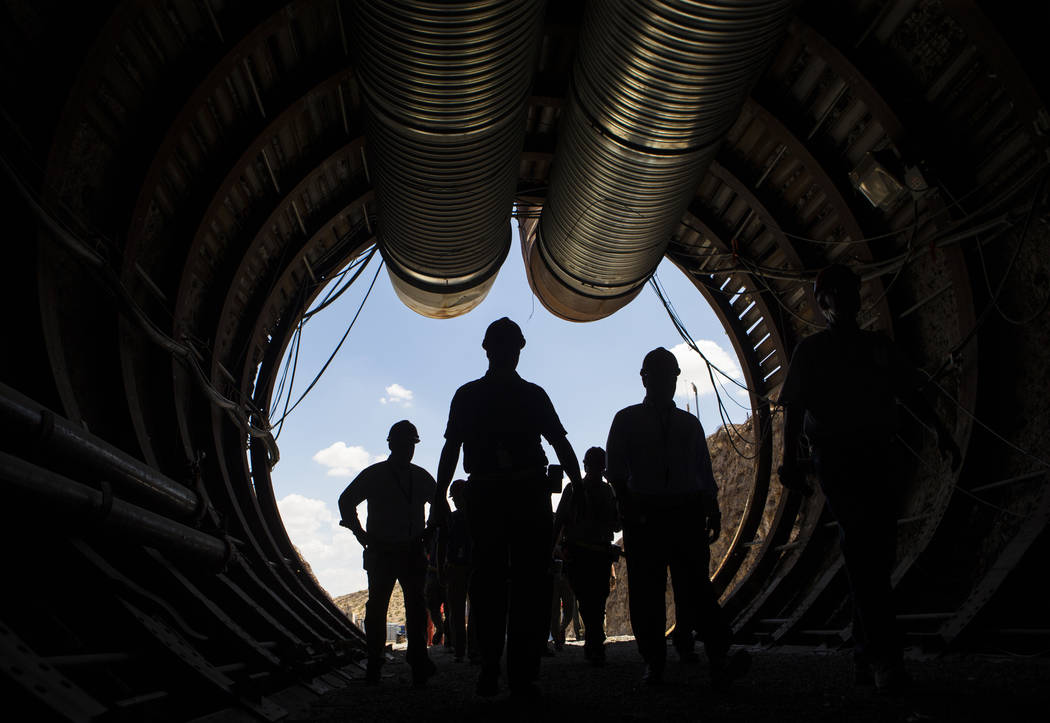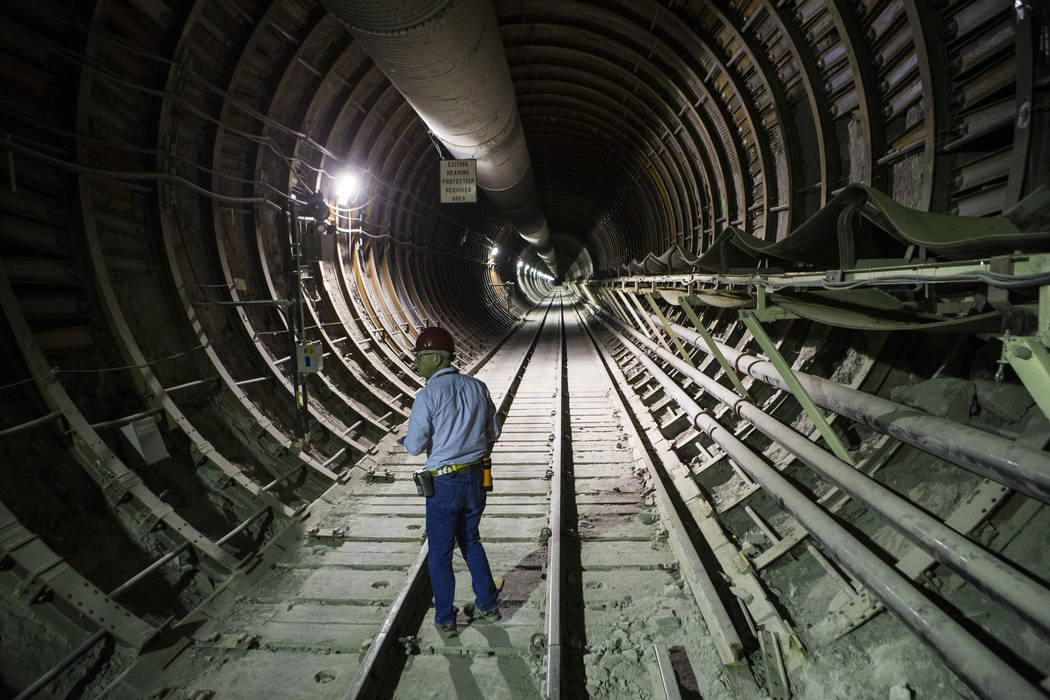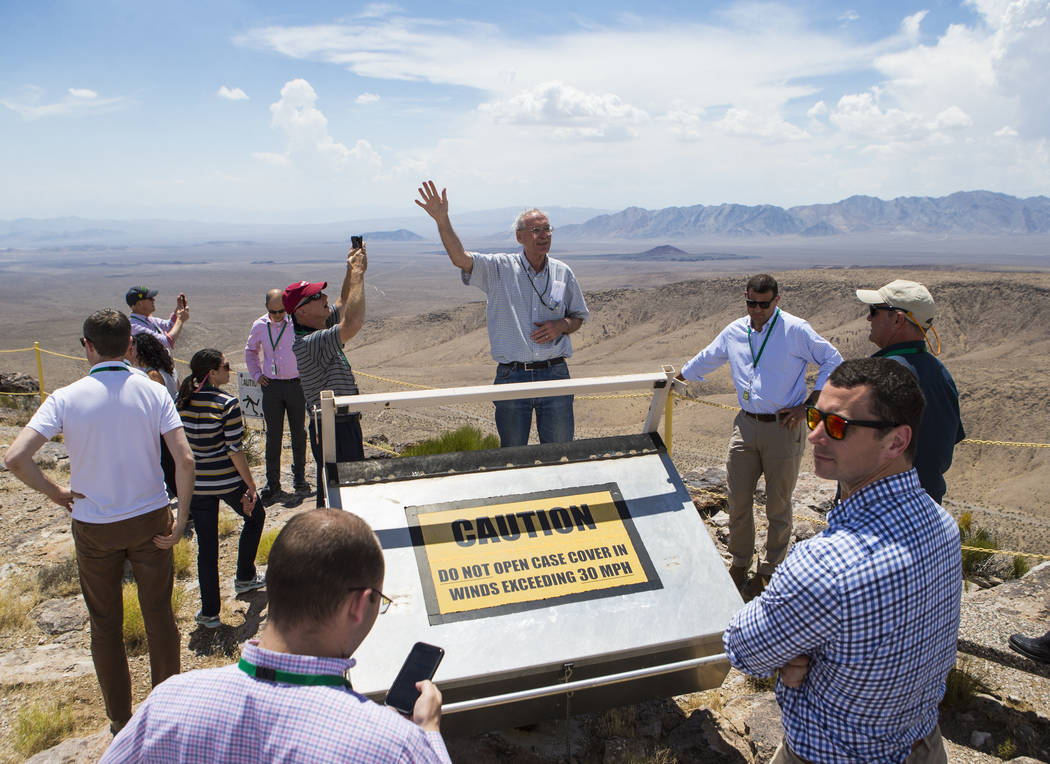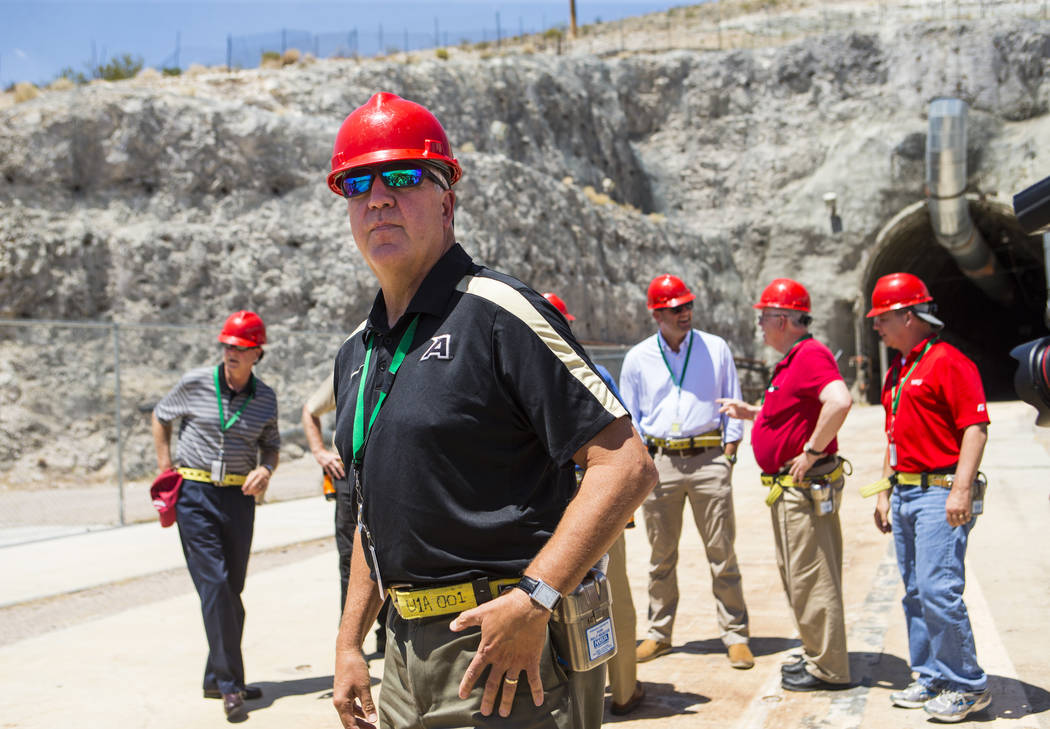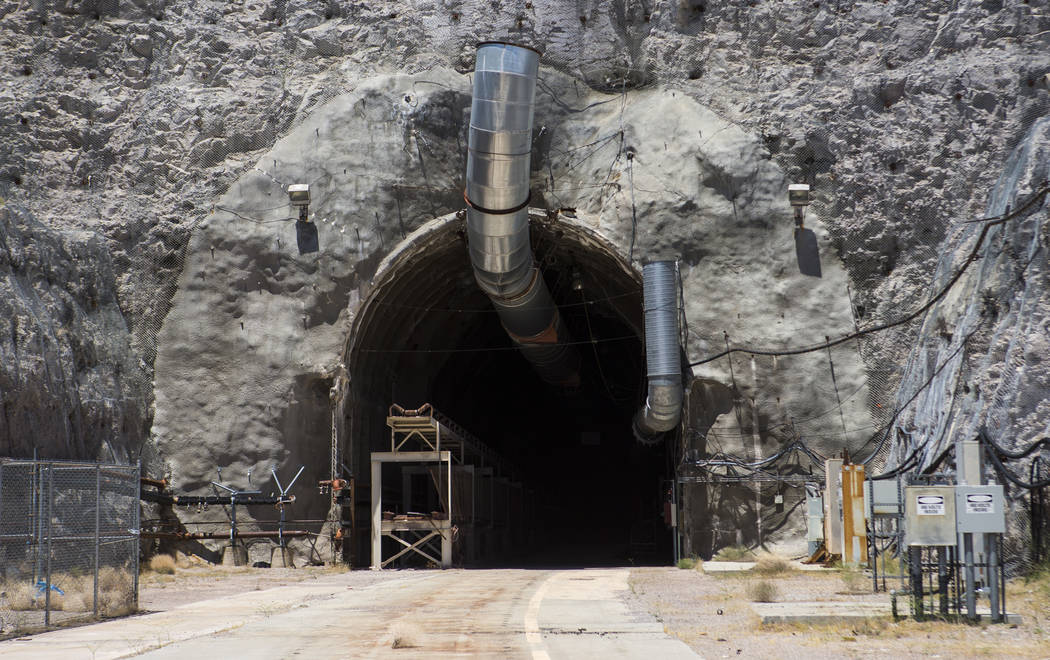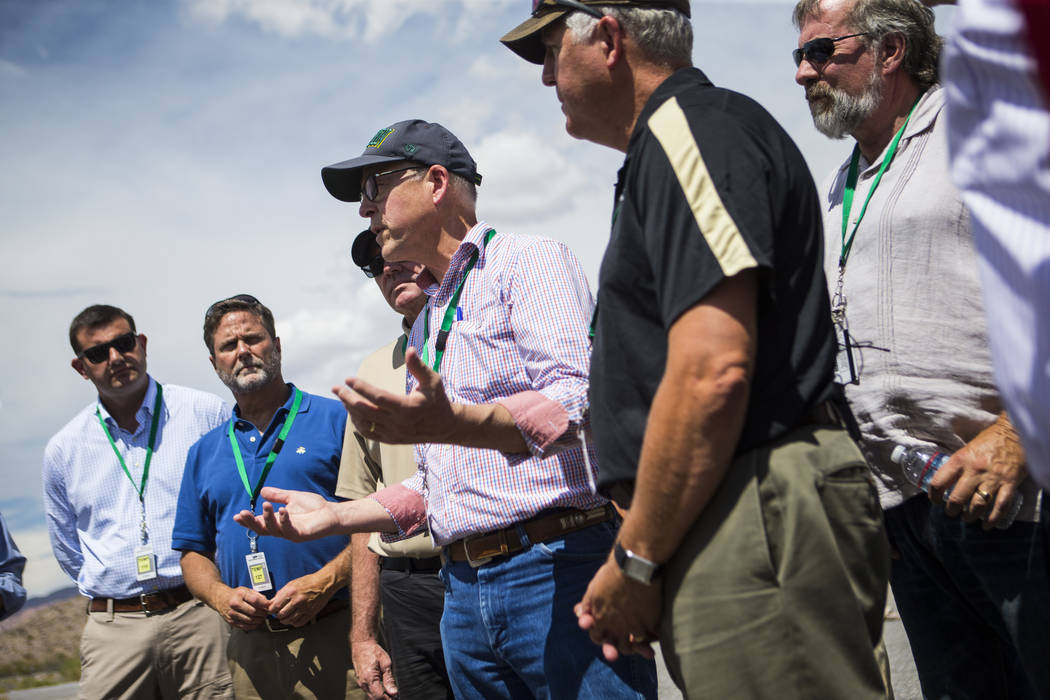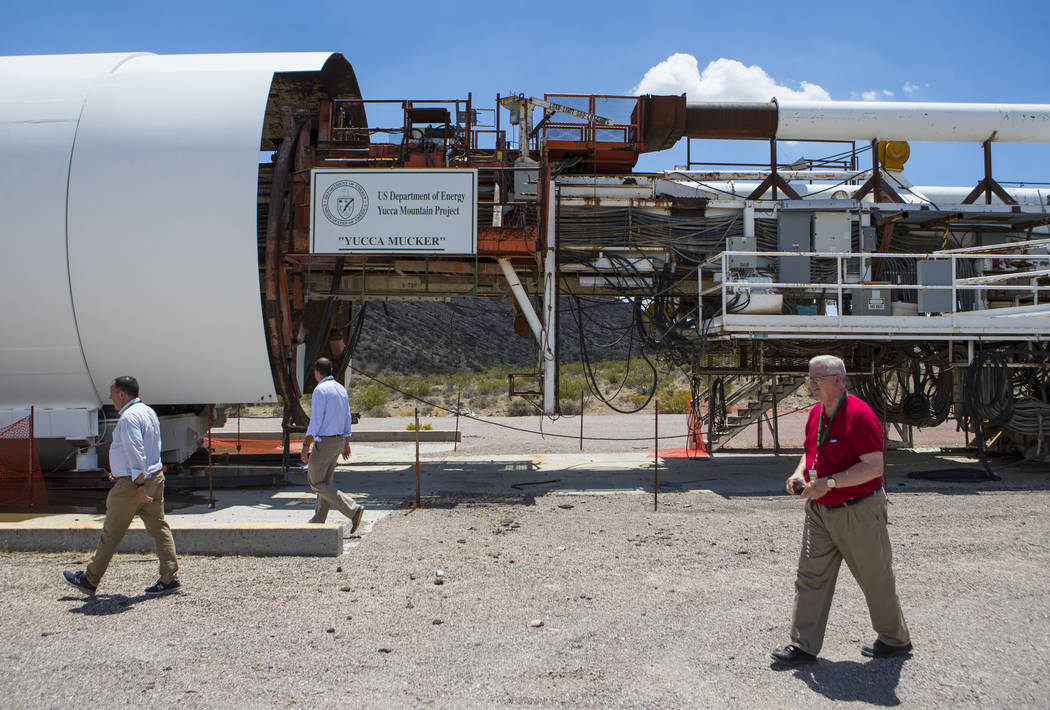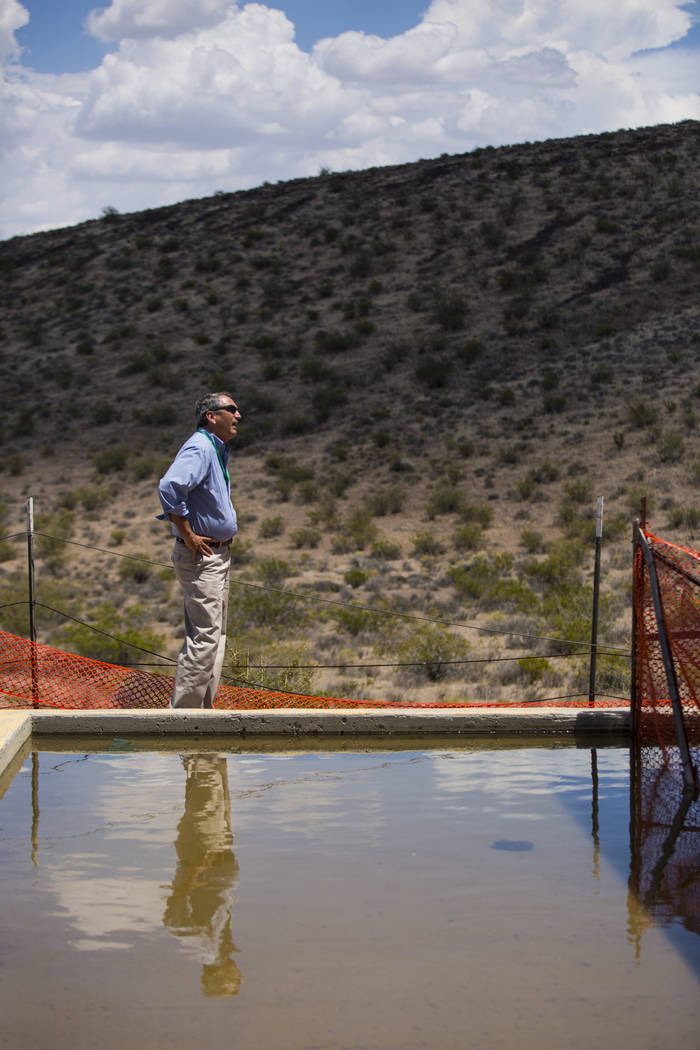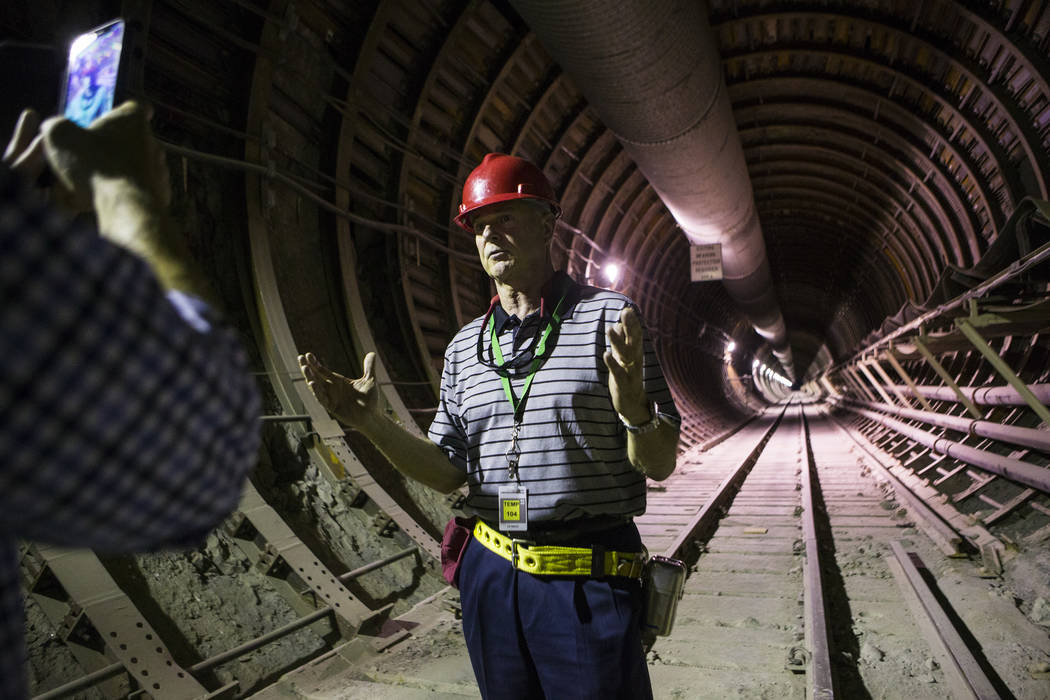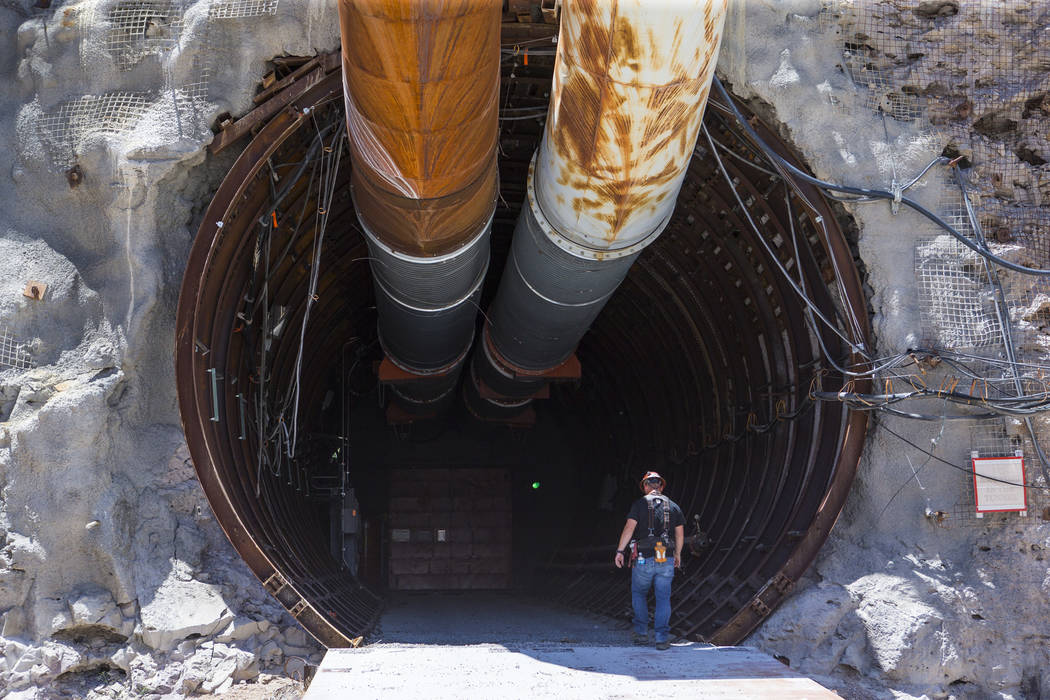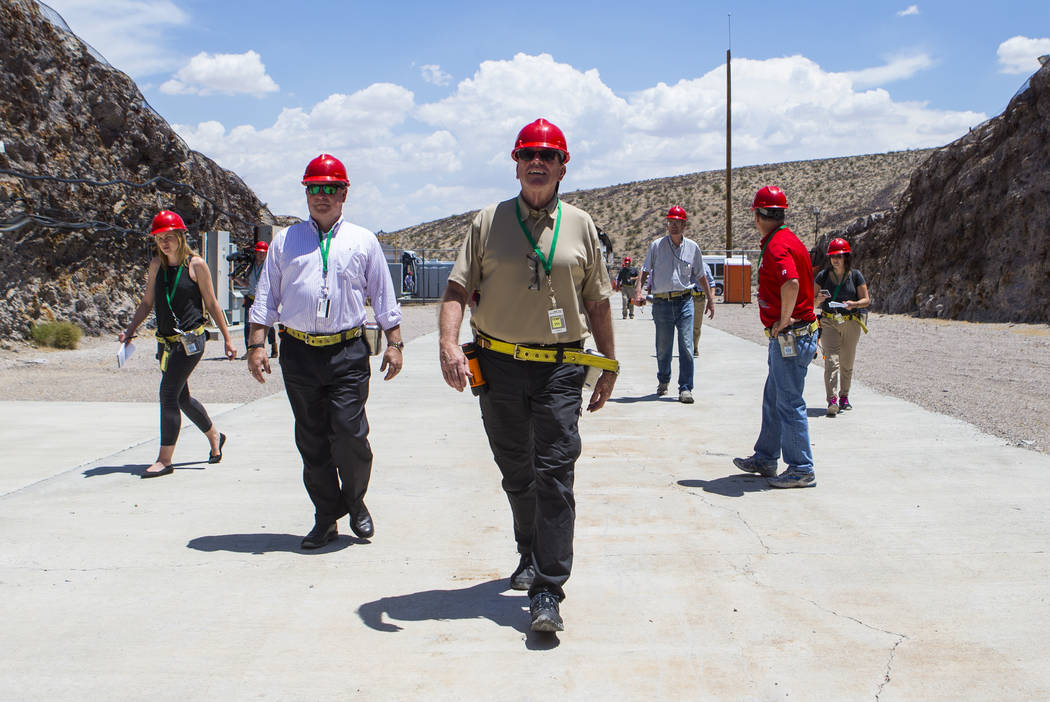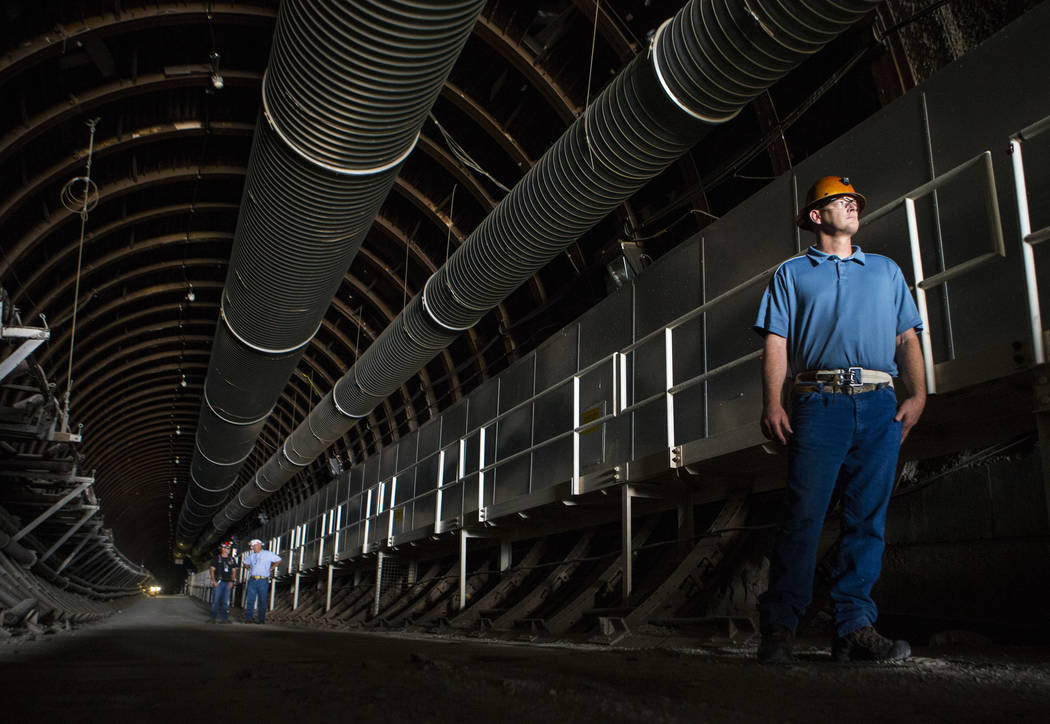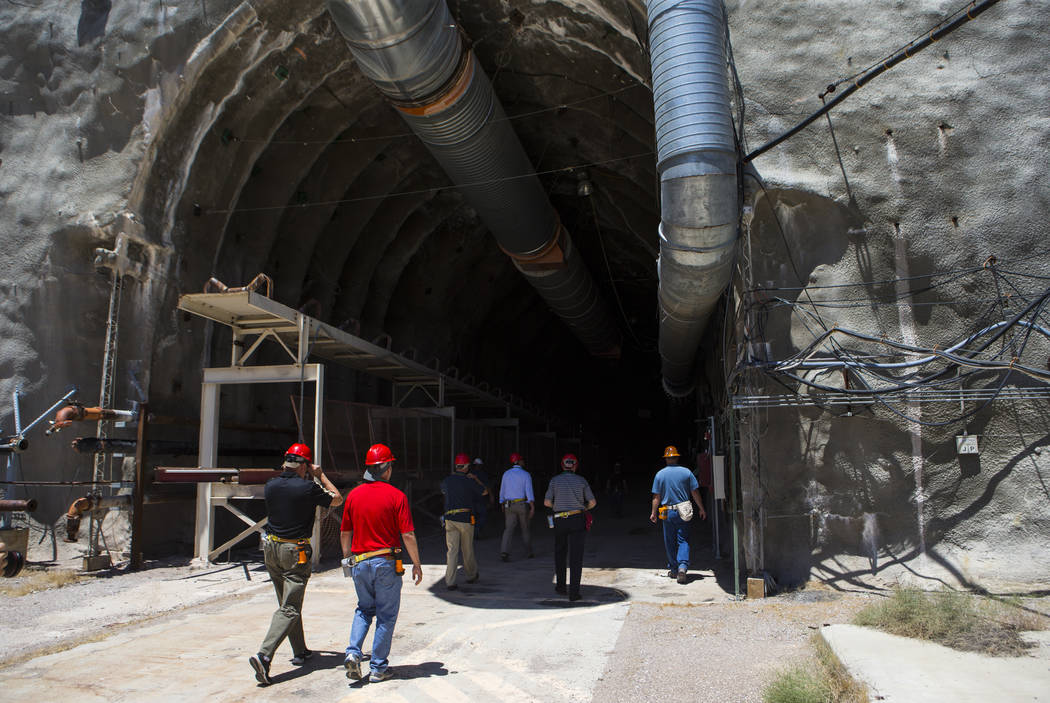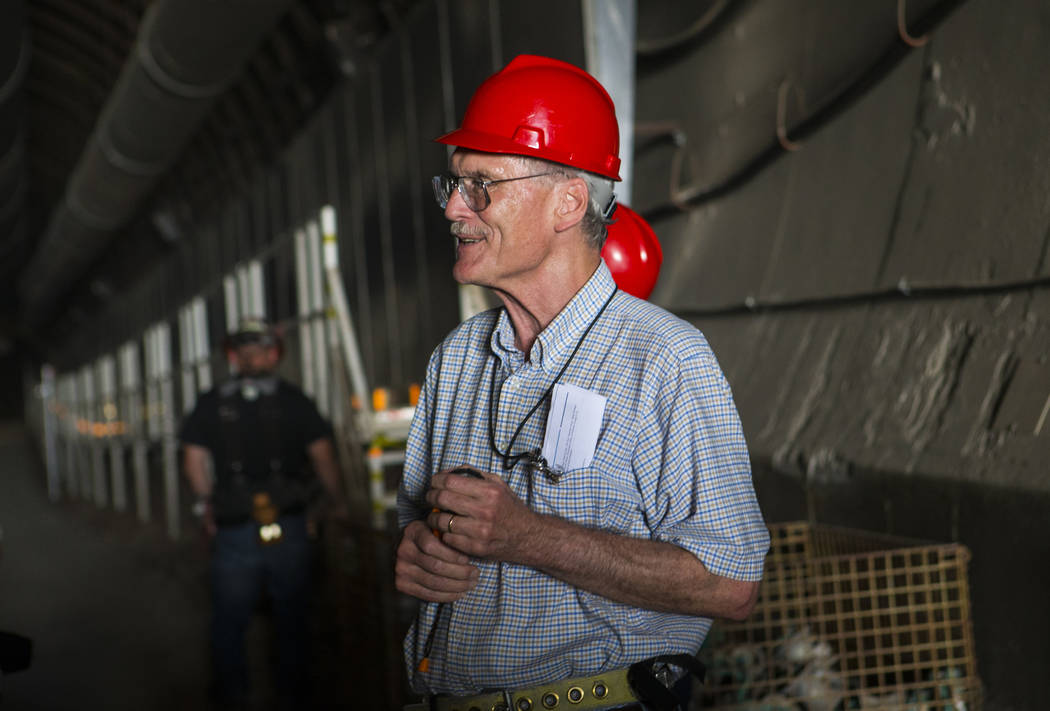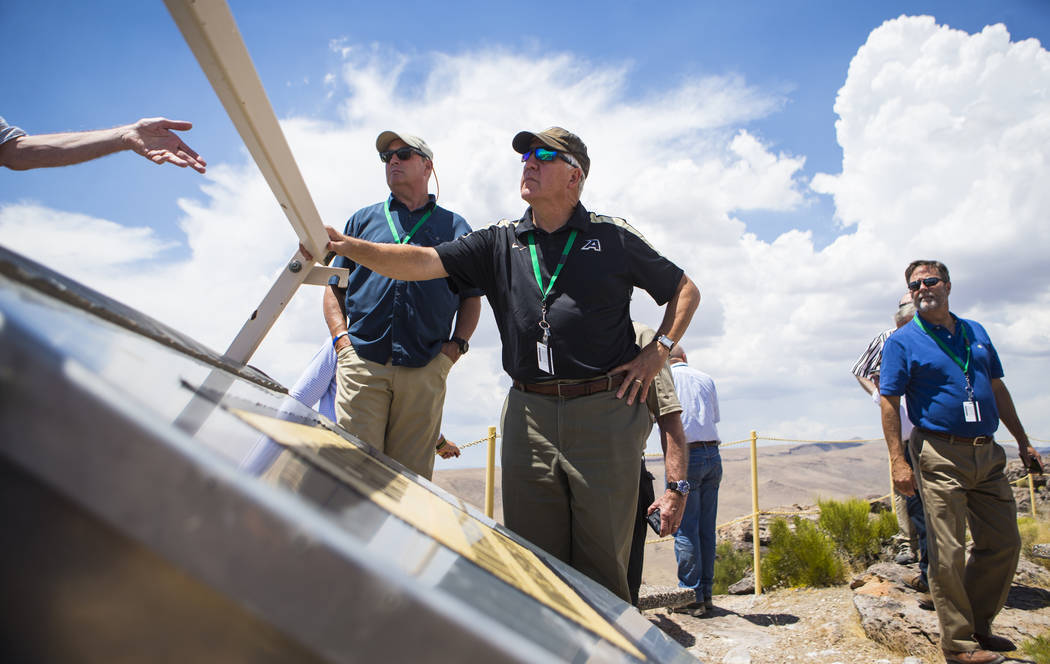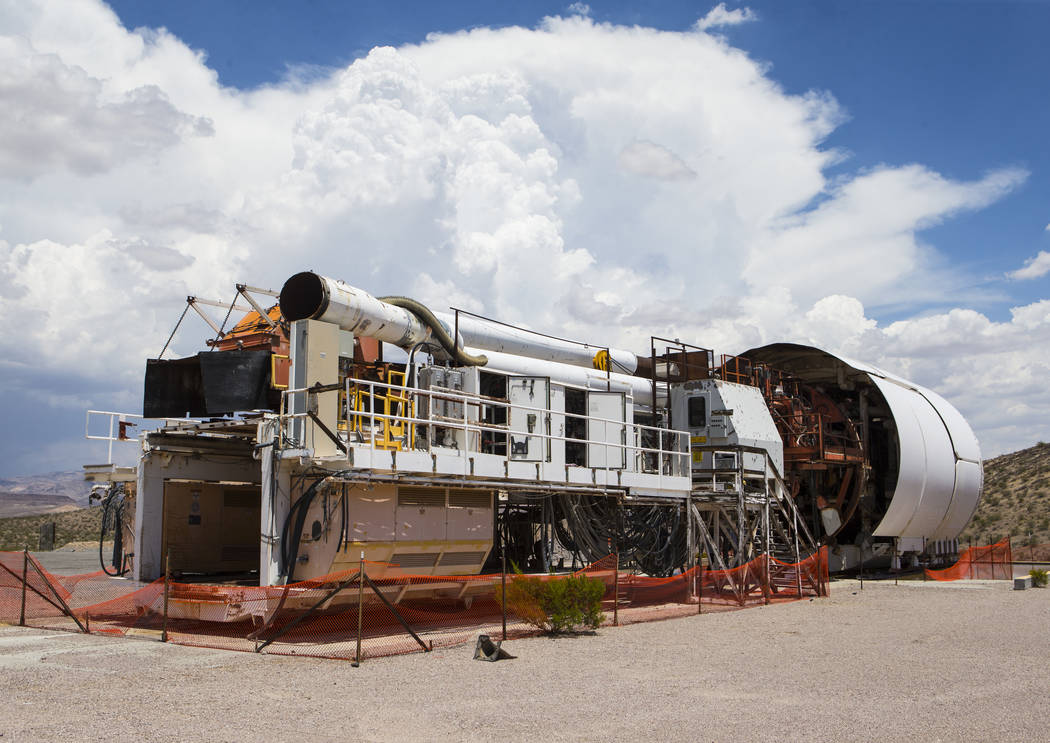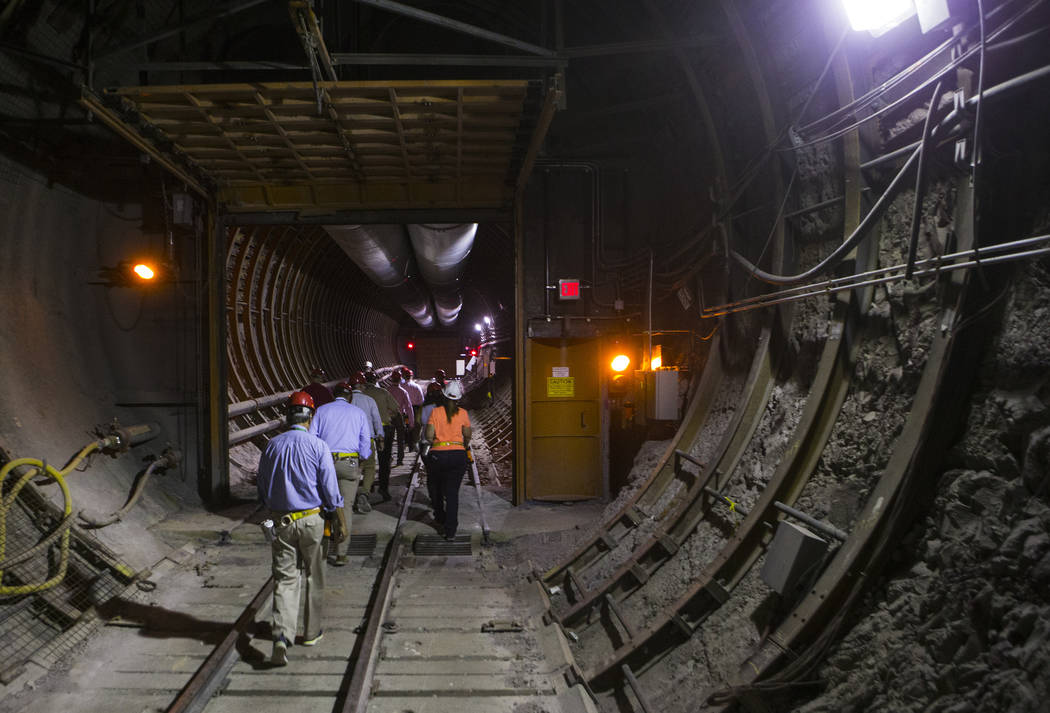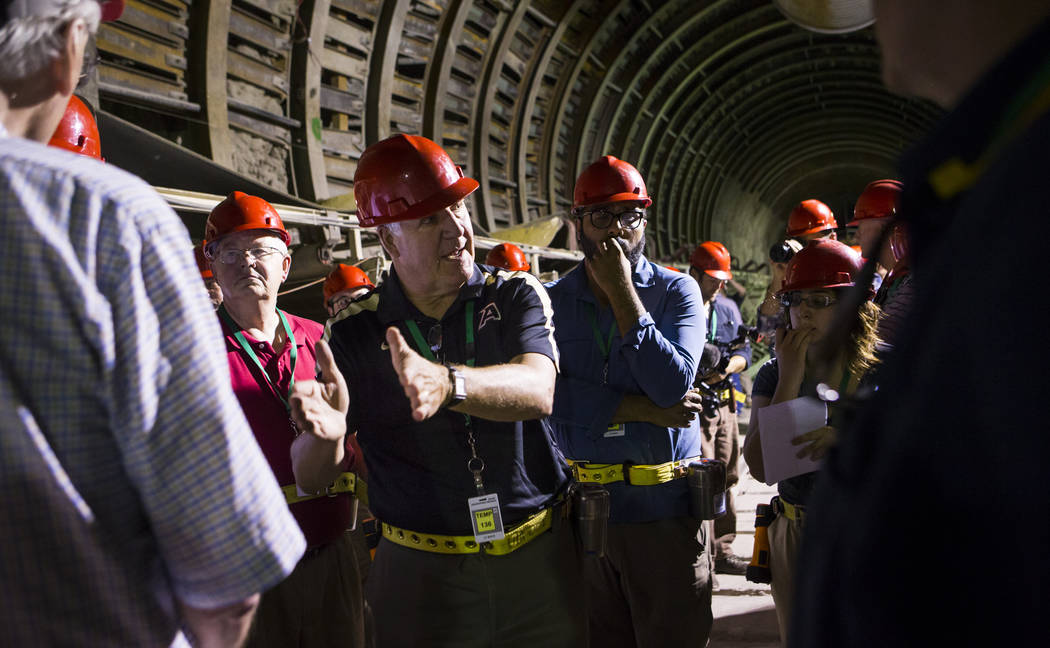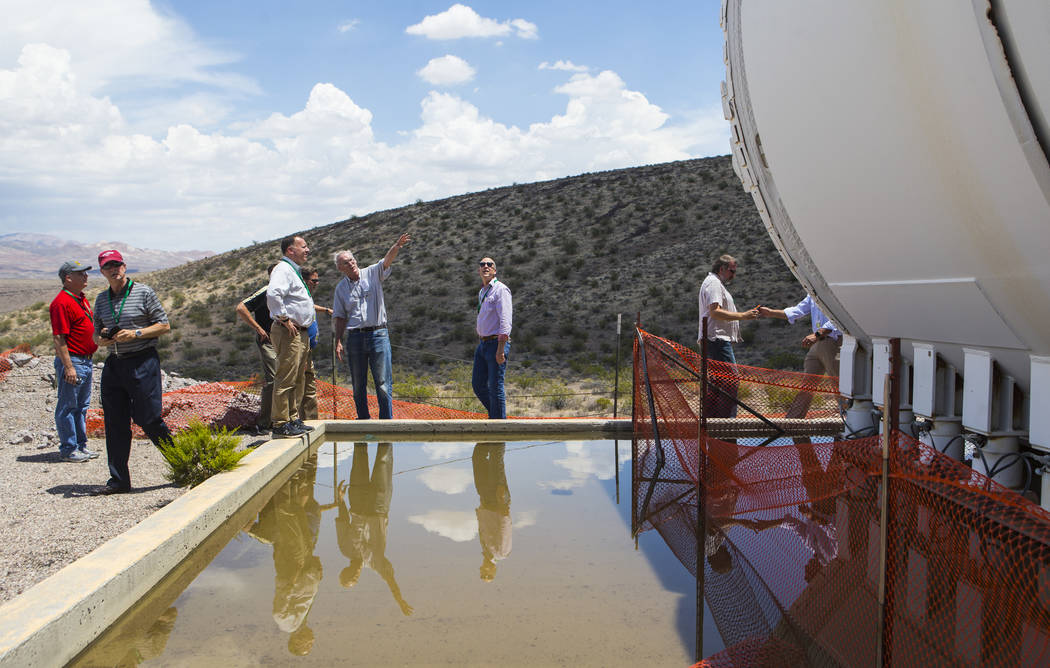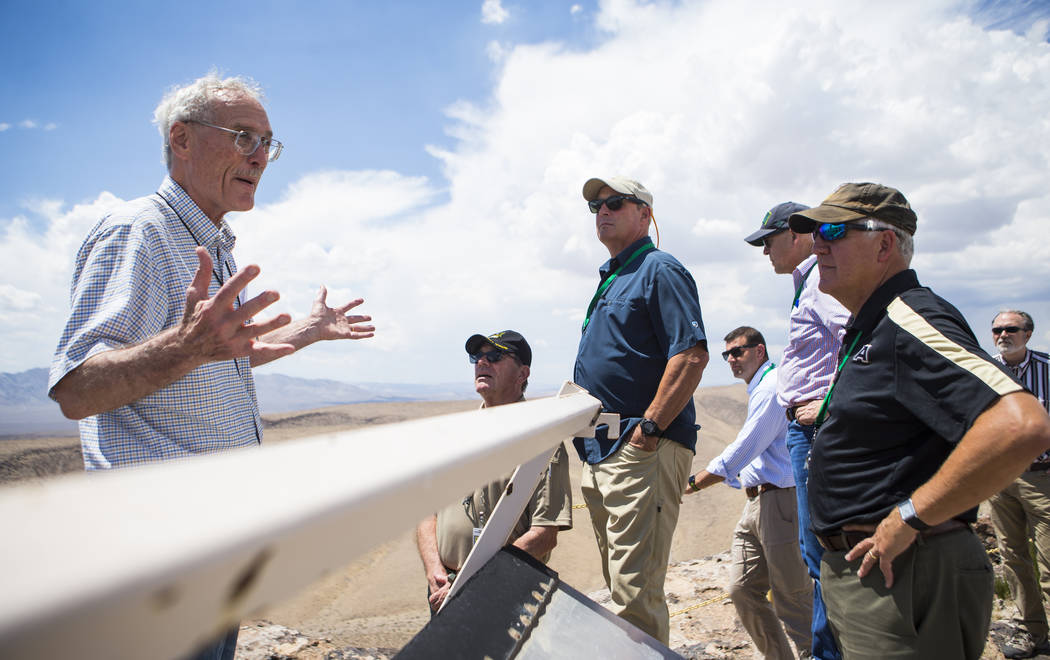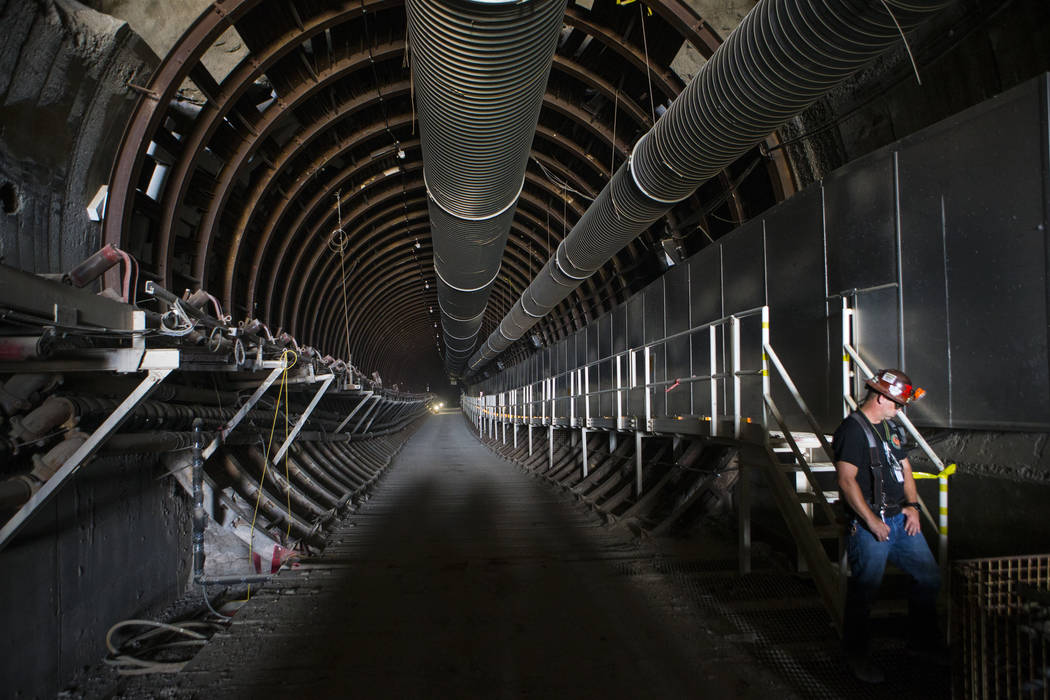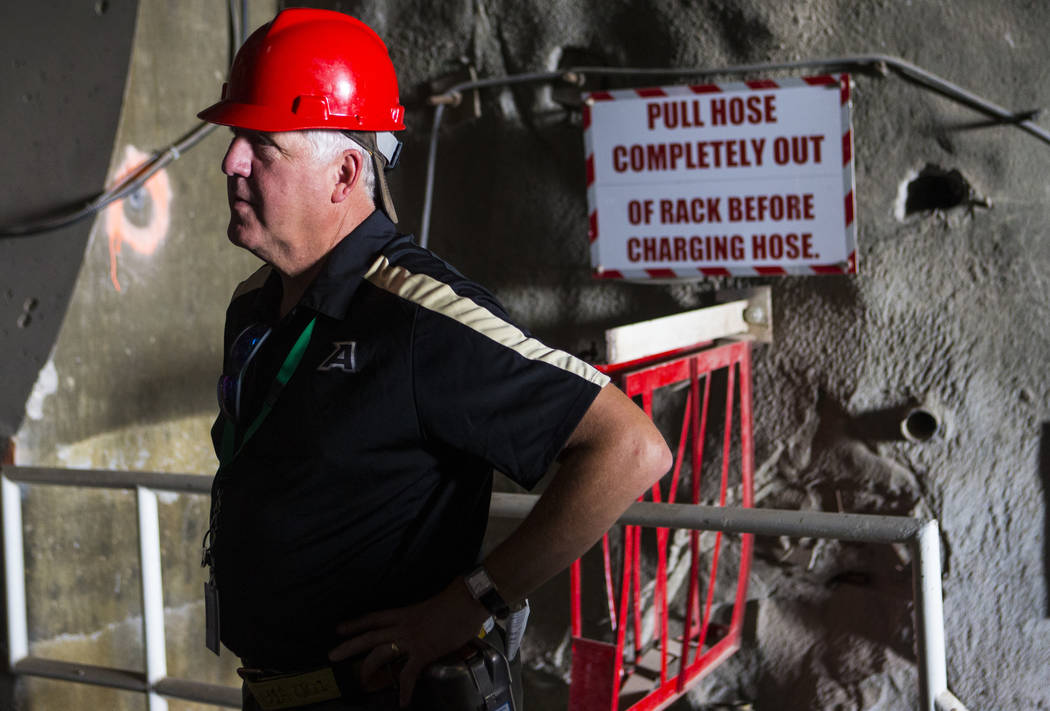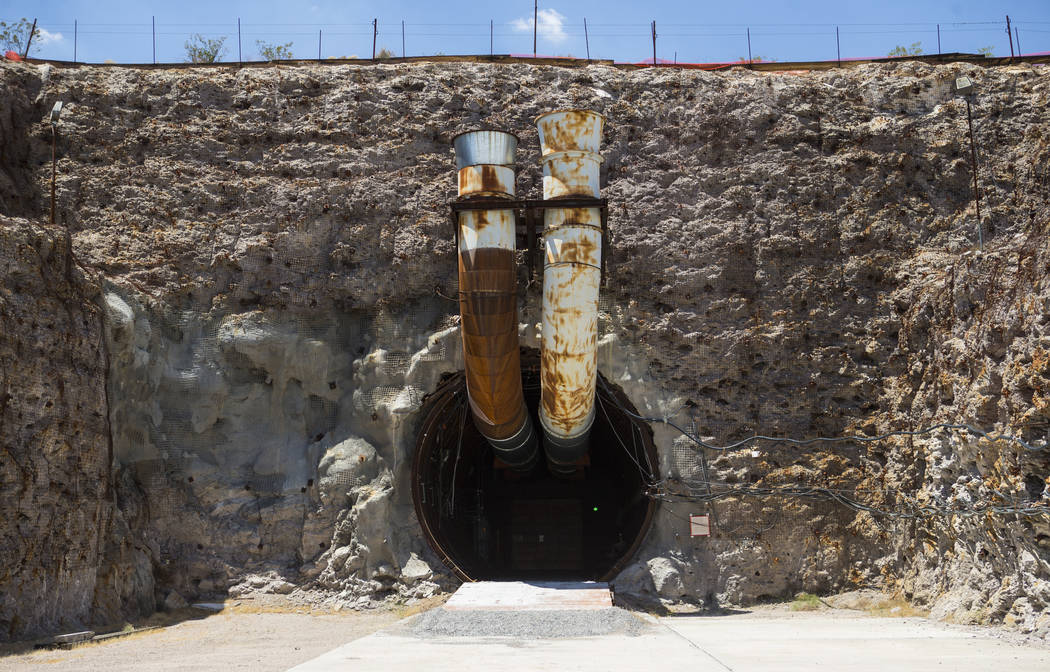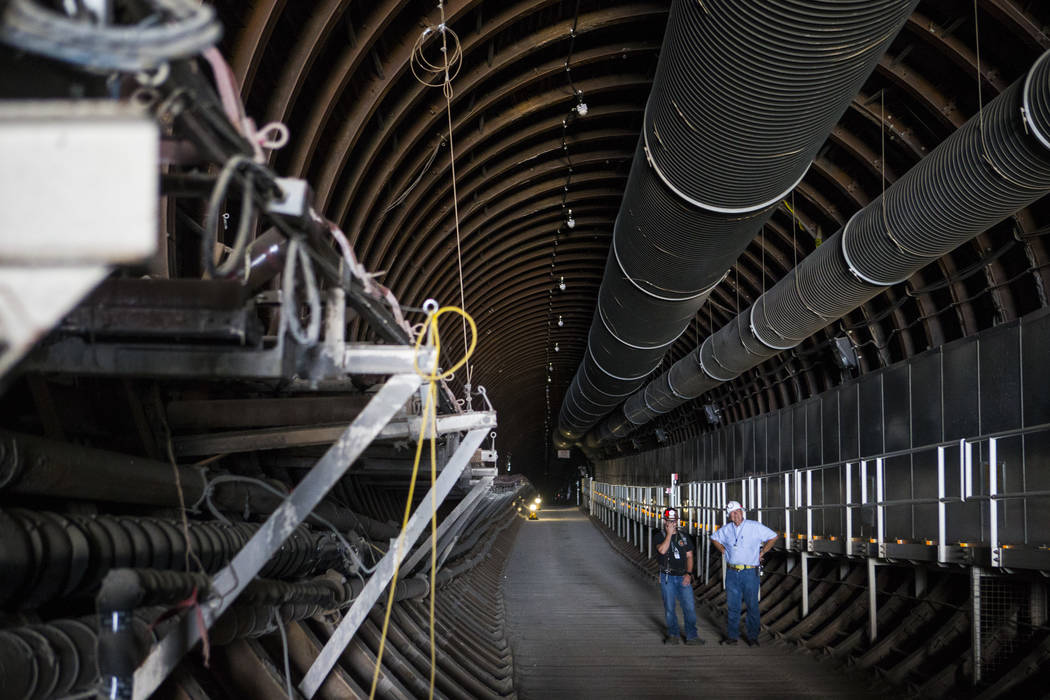Members of Congress tour Yucca Mountain in Nevada
As Congress battles over whether to bury nuclear waste in Nevada, lawmakers on Saturday visited Yucca Mountain to tour the mothballed exploratory tunnel in the geological formation 95 miles northwest of Las Vegas.
A dozen congressmen stood in front of the metal door as it opened like a garage, revealing the entrance to a 5-mile tunnel into the proposed waste repository.
“Either Yucca Mountain goes forward, or Yucca Mountain fails,” Department of Energy geologist William Boyle remarked to the legislators Saturday during a daylong tour of the remote site.
The group followed the trail of pipes running along the tunnel, which is home to owls, and the footprints of a ring-tailed
cat mark the desert sand.
It was the first such congressional tour of the site since 2015, when Rep. John Shimkus, R-Ill., chairman of the House energy and commerce subcommittee on the environment, led a half-dozen lawmakers underground to review the proposed repository.
The congressmen are from states where waste is being stockpiled because the federal government has failed to take possession and store spent fuel rods and radioactive materials.
Shimkus is convinced Yucca is the solution, and in May he introduced legislation that was overwhelmingly approved by the House to streamline the licensing process on the Energy Department’s application to build the repository.
President Donald Trump has proposed restarting the licensing process and included funding in his budget for fiscal year 2019, which begins Oct. 1. Shimkus said he hopes that the site will one day receive shipments of radioactive waste from 121 sites in 39 different states. The waste would be buried 1,000 feet below ground to decay for at least 1 million years.
He invited his colleagues Saturday to see it for themselves and understand the science behind it.
“It’s kind of self-explanatory when you travel out here and you see their remoteness and what’s been done so we can move forward,” he said.
The only Nevada lawmaker scheduled to be on the tour was Rep. Ruben Kihuen, a Democrat whose congressional district includes Yucca Mountain.
Kihuen canceled, citing a scheduling conflict. Shimkus then asked Rep. Dina Titus, D-Nev., and Rep. Jacky Rosen, D-Nev., if they would like to participate. Both declined. Titus called the tour a “taxpayer-funded junket,” and Rosen said it was a “political stunt” by Shimkus.
***
In the first alcove on the north side of the site, stains of water can be seen on the ceiling. Boyle, the tour guide for the day, detailed an experiment done with drip irrigators to test water tightness in the facility.
“This is pretty much the only place in Yucca Mountain where we had dripping water,” he said. “And we caused it.”
The department had to be sure that the tunnel would withstand heavy amounts of rain and snow. But, he contends, there’s no way to completely close it off from nature’s wrath.
“Yucca Mountain isn’t watertight,” he said. “We couldn’t make it if we tried.”
Congress members peppered Boyle with questions. Texas Republican Joe Barton wanted to know how Yucca would react from the heat given off by nuclear waste.
Boyle said scientists heat the rocks in the walls to 200 degrees Celsius for four years.
“It’s a pressure cooker situation,” he explained. All that happened is the water in the rock turned into steam, moved along the cracks of the rocks and was released as condensation, Boyle said.
Environmental concerns
Many opponents of Yucca as a waste disposal site say the area is geologically complicated, prone to earthquakes and volcanoes.
In a July 11 letter to House leaders, the Las Vegas Metro Chamber of Commerce said that “the transport and safety of these shipments need to be part of a national conversation.”
The state government and many elected officials have long opposed the project and have cited studies that say the site isn’t safe for storing nuclear waste.
Steve Womack, R-Arkansas, said that he understands the concerns of his Nevada counterparts but that he believes science has shown it’s a safe, long-term solution. He said his state is one of the 39 with no options for storing its waste.
“We already spent $15 billion, and we’ve wasted a lot of time,” he said. “This is isolated, out in the middle of nowhere, a tremendous alcove. It makes all common sense.”
Outside one end of the tunnel, Boyle pointed out holes in the rock formation.
“It looks kind of like Swiss cheese,” he said.
What he highlighted was hot tuff from an erupted volcano that cooled in the rock before gas could escape, which he said has no effect on the repository.
“This has been empty for 20 years. Nothing happened,” he said. “It’s as good today as it was.”
Outside the tunnel, Boyle pointed to the south of the test site, where the closest humans to Yucca Mountain live. It’s Amargosa Valley, he said, a small town with one gas station, one convenience store and a brothel.
“If we’re not at the end of the universe, we’re awful close,” he said.
Oregon Congressman Greg Walden said that there is an urgency to solve the problem of disposing of nuclear waste while taking into consideration the wishes of Nevada lawmakers.
“We need to get to a permanent solution that respects the voices in Nevada but also understands this is a national issue,” said Walden, chairman of the Committee on Energy and Commerce. “It is time to move forward in America to solve this problem that has lingered for decades.”
Contact Briana Erickson at berickson@reviewjournal.com or 702-387-5244. Follow @brianarerick on Twitter.
Related
Lawmaker hopes Yucca Mountain tour puts pressure on Congress
NRC member rejects Nevada request to sit out Yucca Mountain proceedings
Heller, Rosen tangle over who can stop Yucca Mountain revival
Las Vegas officials vote against reviving Yucca Mountain
Nevada wants recusal from NRC member on Yucca Mountain decisions
Move to strip Yucca Mountain funds from Energy spending bill fails
Appeals court throws out lawsuit over Nevada's Yucca Mountain



